We independently evaluate all recommended products and services. If you click on links we provide, we may receive compensation.
If you ask any dermatologist what their skin care essentials are, they’re likely to name three things: retinol, sunscreen, and vitamin C. Retinol, of course, is used to help address the signs of aging, and SPF, to protect the skin from sun damage. Vitamin C, meanwhile, does it all. In skin care, the naturally occurring antioxidant is used to help brighten the skin, even skin texture, boost radiance — the list goes on (and on).
But to reap these benefits, finding the right product for your skin is a must: Vitamin C products can vary immensely in potency and efficacy. For details on how to get the most out of this powerhouse ingredient, we reached out to the pros. Below, learn why vitamin C is a must-have in your skin care routine and get insider tips on finding the right vitamin C product for your needs.

What Is Vitamin C?
According to a study published in the Journal of Clinical and Aesthetic Dermatology, vitamin C is the most plentiful antioxidant in human skin. Aesthetician and The A Method co-founder Angelina Inscoe, says it plays an important role in supporting collagen production and “helps protect the skin from environmental stressors like UV rays and air pollution.” While we need vitamin C for healthy skin, we can’t synthesize it on our own — instead, we have to get it via our diet. Citrus fruits and leafy greens are high in vitamin C, as are papayas and peppers. (Fun fact: A single bell pepper has nearly three times more vitamin C than an orange.)
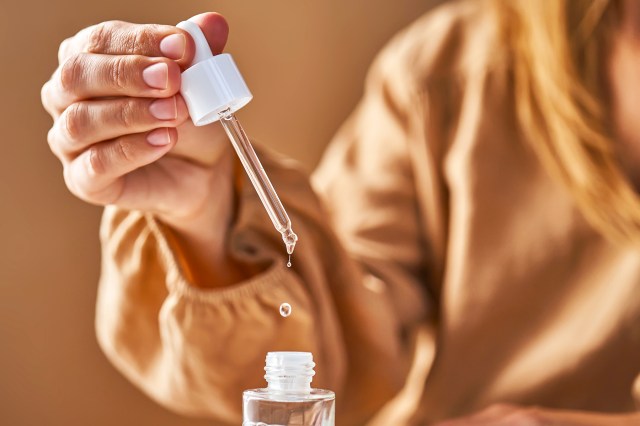
Do You Need To Use Vitamin C in Your Skin Care Routine?
Even if you eat plenty of vitamin C-rich foods, only a small portion of the antioxidant will make its way to your skin. As such, many experts recommend adding topical vitamin C to your skin care routine to ensure your skin has enough of the nutrient to function optimally.

What Are the Benefits of Vitamin C?
“Incorporating vitamin C into your skin care routine can be a changer for achieving brighter, more even-toned skin,” Inscoe says. According to the Cleveland Clinic, the powerhouse ingredient can help:
- Neutralize free radicals to help minimize skin damage caused by stressors such as air pollution and UV radiation.
- Boost collagen production and help protect against the natural loss of collagen that comes with age.
- Reduce the appearance of dark spots and other skin discolorations.
- Improve the appearance of fine lines and wrinkles.
Keep in mind that there are a few different forms of vitamin C used in skin care, and not all of them are created equally. L-ascorbic acid, or pure vitamin C, is the most active form — and the most well studied — but it’s fairly unstable. “It’s important to make sure your vitamin C products haven’t changed color,” celebrity aesthetician Celeste Rodrigues says. If they have, she adds, that’s an indication that the vitamin C has gone bad, and you should toss the products. Pay attention to the expiration dates before you open a bottle, too.
Other forms of vitamin C used in skin care include magnesium ascorbyl phosphate, ascorbyl 6 palmitate, and tetrahexyldecyl ascorbate — the latter of which Inscoe recommends due to its efficacy and stability.

Can Everybody Use Vitamin C?
“All skin types can benefit from vitamin C,” Rodrigues says. However, highly concentrated products could be irritating for those with sensitive skin. If you’re prone to irritation, start with a lower-potency vitamin C serum or moisturizer (around 10% is ideal) and do a patch test before adding anything to your daily routine.
On the topic of your daily routine, you may be wondering whether vitamin C is safe to use with other active ingredients. The answer, ultimately, depends on your skin type. Vitamin C is great to pair with other antioxidants such as vitamin E and ferulic acid, but if you’re looking to combine it with retinol, exercise caution. The two together may be irritating for those with sensitive skin. Either look for products that contain both ingredients (as they’ll be formulated to have the ideal concentration of each), or save retinol for your evening routine and use vitamin C in the morning.
Shop the trend:
While there are plenty of ways to incorporate vitamin C into your routine — toners, cleansers, moisturizers, you name it — licensed master aesthetician Rachel Lozina suggests opting for a serum, as these tend to be more concentrated than other products. With that in mind, here are the vitamin C serums we’re loving right now.
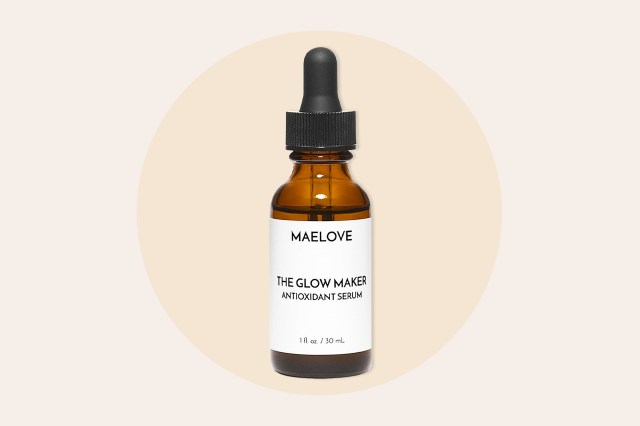
1. Maelove The Glow Maker Antioxidant Serum
This vitamin C serum went viral on TikTok earlier this year, with scores of creators (and derms!) hailing it as a dupe for SkinCeuticals’ iconic C E Ferulic serum — for about $140 less. The oil-free formula contains 15% L-ascorbic acid along with ferulic acid, vitamin E, and hyaluronic acid, and it absorbs quickly without a greasy or sticky feel.
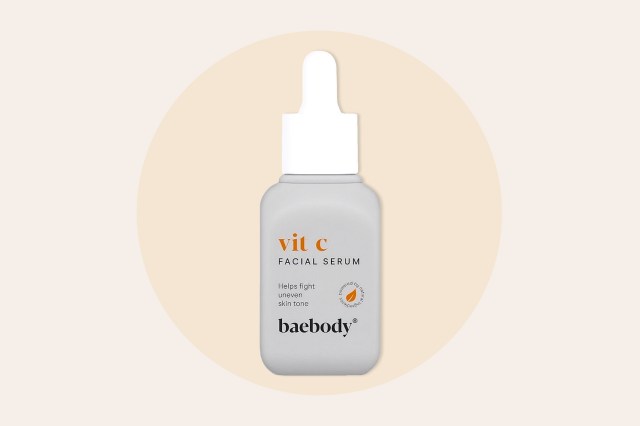
2. Baebody Vit C Facial Serum
If you’re on a budget, this affordable vitamin C serum is a great pick. Lozina loves it because it “helps brighten and energize dull skin while retaining skin moisture.” It also helps soothe redness — a major plus for those with sensitive skin.
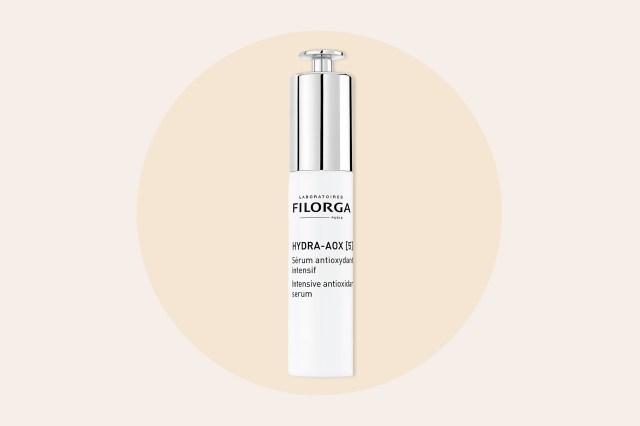
3. Filorga Hydra-AOX [5] Intensive Antioxidant Serum
If you live in an urban area, your skin is likely exposed to far more air pollution than you realize. Using an antioxidant serum can help protect your skin from damage as you go about your daily routine. This option is a great pick, as it contains five antioxidants, including vitamins C, E, and B3, and helps shield skin from oxidative stress. Plus, Rodrigues says, “it has an opaque bottle and the formula is stable to protect against oxidation” — which means you won’t have to worry about it going bad before you’ve had a chance to finish it.
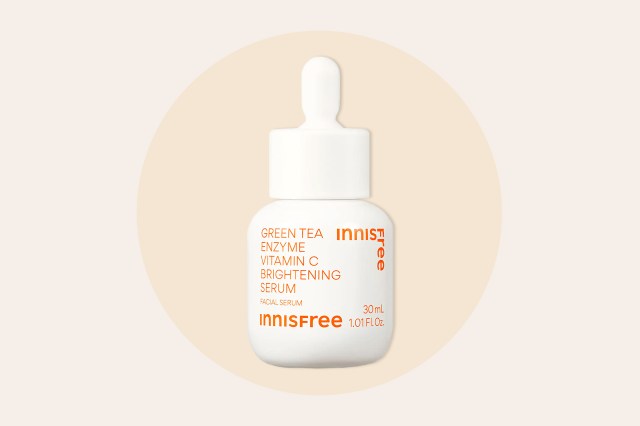
4. Innisfree Green Tea Enzyme Vitamin C Brightening Serum
It’s hard not to be impressed by the ingredients list on this vitamin C serum from Korean skin care brand Innisfree. While vitamin C (in two forms) is the hero ingredient, it also contains vitamin E, ferulic acid, niacinamide, green tea enzymes, and hyaluronic acid. The unique formula provides gentle exfoliation and helps brighten and refine the skin for a more radiant-looking complexion. It’s particularly useful if you’re looking to reduce the appearance of dark spots and discolorations.
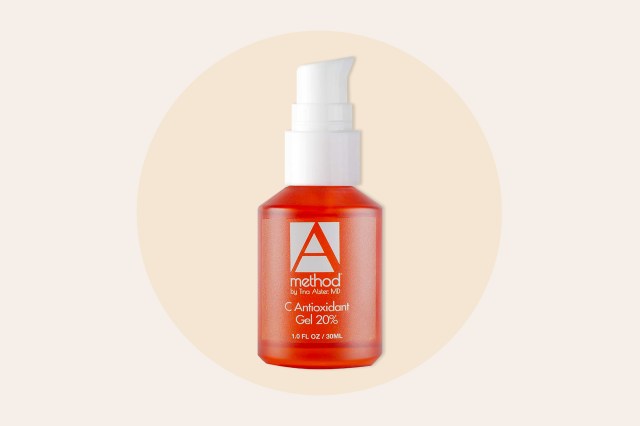
5. The A Method C Antioxidant Gel 20%
If you have oily skin, give this potent vitamin C serum a try. The formula contains an oil-soluble form of vitamin C known as THD-ascorbate, which Inscoe says is gentler on the skin (and may penetrate more readily) than water-soluble forms. The serum is also water-free, which helps increase both the product’s stability and shelf-life.
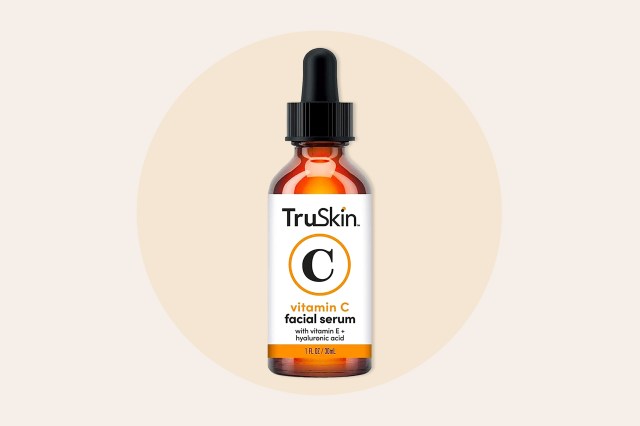
6. TruSkin Vitamin C Face Serum
This Amazon bestseller (it has almost 100,000 five-star ratings) contains hyaluronic acid and vitamin E to ensure everyone — even those with sensitive skin — can use it.
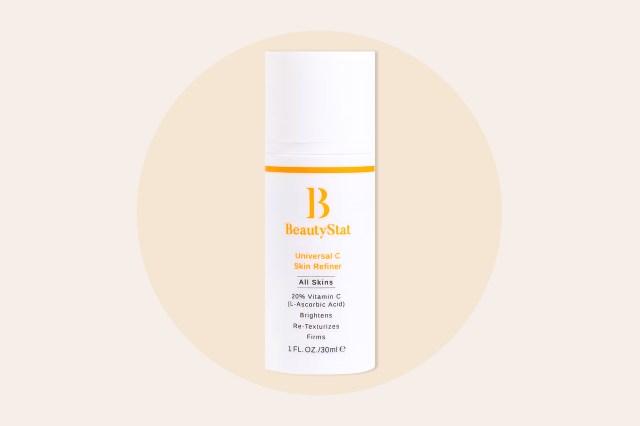
7. BeautyStat Cosmetics Universal C Skin Refiner 20% Vitamin C Brightening Serum
Hailey Bieber’s favorite vitamin C contains 20% stabilized L-ascorbic acid through a patented encapsulated system.
This article is for general informational purposes only.
Affiliate Disclaimer Medical Disclaimer
















 Unique Beauty is free for all users.
Unique Beauty is free for all users.